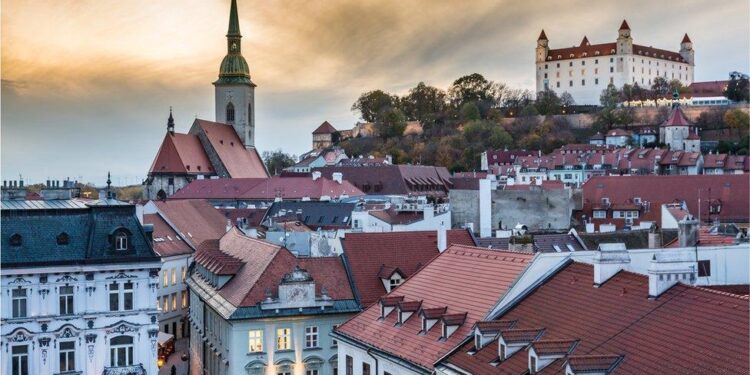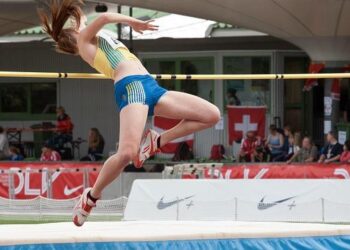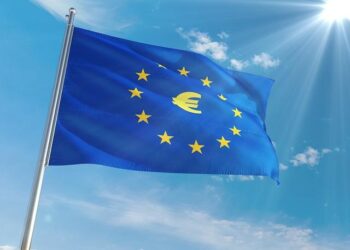Slovakia’s Prime Minister Robert Fico has stated that his country cannot back new European Union sanctions against Russia unless accompanied by viable energy solutions, Reuters reports. As the EU contemplates expanding punitive measures over the ongoing conflict, Fico underscores the pressing need to address Slovakia’s energy security concerns, highlighting the challenges faced by nations heavily reliant on Russian energy supplies. The statement adds to the growing debate within the bloc over balancing geopolitical pressure on Moscow with safeguarding member states’ economic and energy stability.
Slovak Prime Minister Emphasizes Need for Energy Security Before Backing New EU Sanctions on Russia
Slovakia’s Prime Minister, Robert Fico, has voiced strong reservations regarding the imposition of additional EU sanctions on Russia, citing the urgent need to secure the country’s energy supply. Fico stressed that without concrete and reliable energy alternatives in place, Slovakia cannot afford to support measures that might exacerbate its already vulnerable energy situation. He called on EU partners to prioritize joint strategies that ensure uninterrupted energy flows, highlighting the critical dependence on Russian gas and the risks that arise from sudden supply disruptions.
The Slovak leader outlined key concerns regarding the potential impact of sanctions, emphasizing:
- Energy affordability for both households and industries
- National energy infrastructure resilience to external shocks
- The need for diverse and sustainable alternatives before sanction measures are finalized
In a comparative context, Slovakia’s energy reliance on Russia remains higher than many EU countries, complicating its ability to swiftly pivot away from Russian fuel sources. Below is a simplified overview of the current energy dependency among select EU nations, illustrating the challenges faced by Slovakia:
| Country | Russian Gas Dependency (%) |
|---|---|
| Slovakia | 90% |
| Germany | 55% |
| France | 20% |
| Poland | 40% |
Fico Calls for Comprehensive Energy Solutions to Mitigate Economic Impact of Sanctions
Slovak Prime Minister Robert Fico emphasized the urgent need for the European Union to devise holistic energy strategies before placing additional sanctions on Russia. According to Fico, any sanctions that risk destabilizing energy supplies without viable alternatives could severely impact Slovakia’s economy, which heavily depends on reliable and affordable energy sources. He urged EU leaders to prioritize diversification of energy imports, investment in renewable technologies, and safeguards for vulnerable industries.
Highlighting key areas requiring attention, Fico outlined several demands that must be met to achieve energy resilience:
- Immediate investment in renewable energy infrastructure across member states.
- Enhancement of natural gas storage capabilities to buffer supply disruptions.
- Streamlined cooperation on cross-border energy projects to facilitate resource sharing.
- Support mechanisms for industries most vulnerable to energy cost spikes.
A summary table below compares Slovakia’s current energy reliance with proposed improvements needed to mitigate risks associated with sanctions:
| Energy Aspect | Current Status | Target Improvement | |||||||||||||||||||||||
|---|---|---|---|---|---|---|---|---|---|---|---|---|---|---|---|---|---|---|---|---|---|---|---|---|---|
| Gas Imports from Russia | ~85% | Reduce to below 50% | |||||||||||||||||||||||
| Renewable Energy Share | ~15% |
| Energy Aspect | Current Status | Target Improvement | ||||||||||||||
|---|---|---|---|---|---|---|---|---|---|---|---|---|---|---|---|---|
| Gas Imports from Russia | ~85% | Reduce to below 50% | ||||||||||||||
| Renewable Energy Share | ~15% |
| Energy Source | Current % Share | Proposed Target % |
|---|---|---|
| Natural Gas (Russia) | 70% | 30% |
| Renewables | 12% | 40% |
| Coal | 15% | 20% |
| Others (Biofuel, Oil) | 3% | 10% |
In Retrospect
As Slovakia continues to navigate the complex dynamics of EU-Russia relations, Prime Minister Robert Fico’s stance underscores the critical importance of securing reliable energy alternatives before endorsing additional sanctions. With energy security at the forefront of national concerns, Slovakia’s position highlights the broader challenges facing the EU in balancing geopolitical objectives with practical economic considerations. The coming months will be pivotal as member states seek consensus on sanctions policies amid evolving energy realities.
















